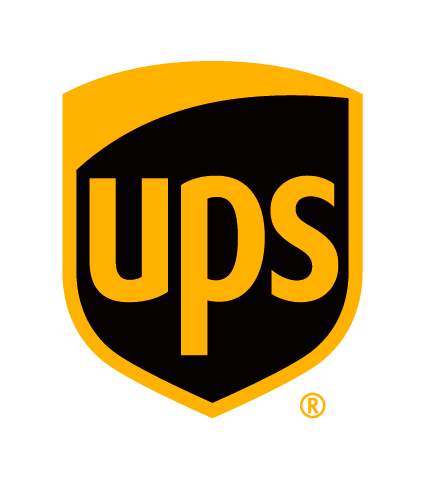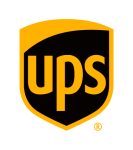
Σχετικά
As UPS celebrates its Centennial year, it recalls the story of Jim Casey, an almost-penniless teenager in Seattle, who along with partner Claude Ryan, borrowed $100 to run a messenger company from a basement and who had the vision to chart a course for the company that would employ nearly one-half million people and expand its services around the globe. The story of UPS is, at its heart, the story of the American Dream. Hard work, determination, integrity, and superior customer service can transform not only an entrepreneur’s life and business, but also the lives and businesses of countless others. In 1907, the two teenage entrepreneurs created what would become the world’s largest package delivery service. With telephones and automobiles scarce, the company fulfilled a range of tasks, from running errands and carrying notes on foot or on bicycle, to making home deliveries for drugstore customers. Already experienced in business when he began the company, Jim hired other teens as messengers, and his younger brother George joined the firm’s leadership ranks. Jim’s steadfast commitment to reliability, courtesy, neatness, and high ethical standards helped establish the values that continue to guide UPS today. In 1913, the company merged with the Motorcycle Delivery Company, owned by Evert McCabe, to form a company called Merchants Parcel Delivery. The final founding member of the company, Charlie Soderstrom, joined the firm in 1916. With his expert knowledge of automobiles, he helped manage the company’s rapidly expanding fleet of delivery vehicles.
In 1919, the company made its first expansion beyond Seattle to California, where the name United Parcel Service debuted. “United” reflected the company’s consolidated shipments, while “Parcel” indicated the kinds of deliveries the company made, and “Service,” noted Charlie Soderstrom, “is all we have to offer.” During the same year, Charlie was credited with the idea of painting all the company’s cars brown, chosen for its stately appearance. A major innovation occurred in 1924, when the company introduced an innovative conveyor belt system used for package handling. Then in 1929, UPS began to offer air service. In 1975, UPS became the first package delivery company to serve every address in the 48 continental United States. In 1980s, UPS focused on expanding its presence in the skies. In order to ensure the company’s reputation for dependability, UPS took steps toward creating its own fleet of airplanes. By 1988, launching UPS Airlines. Organized in slightly more than one year with all the needed technology and support systems, UPS Airlines was the fastest airline start-up in airline history. Today, it is the world’s eighth largest airline. Currently, UPS runs an international package and document network in more than 200 countries. With its worldwide services, UPS moves nearly 15 million packages through its network each business day.
The early 1990s marked the start of another era of change at UPS. Behind all of UPS Services is Technology. E-commerce emerged as a potent force for changing the ways companies and consumers did business. Technology linked buyers and sellers in new ways that propelled globalization. Since the late 1990s, UPS has invested billions of dollars in technology development and infrastructure, to develop new technology for maintaining efficiency, keep prices competitive, and provide additional customer services. The company’s online presence now extends beyond UPS.com. Popular shipping and tracking systems such as WorldShip, Quantum View, and Campus Ship are Web-based tools that provide customers with efficient and leading-edge technology driven tools to process, track, and manage shipments and supply chains. Today UPS.com receives 15 million online tracking requests daily. Also, operational technology at UPS spans a broad range, from small handheld devices to specially designed package delivery vehicles, to global computer and communications systems. The handheld Delivery Information Acquisition Device (DIAD), carried by all UPS drivers, was developed to capture, and upload delivery information to the UPS network. Finding technological efficiencies have led to environmental benefits. Use of the DIAD eliminates the use of 59 million sheets of paper, equal to 5,187 trees per year.
UPS Greece was founded in June 1996 and following a continuously ascendant course and growth, today possesses leading place in the sector of international high-speed transports in the Greek market, offering the wider and henceforth completed spectrum of services, Pan-Hellenic cover, and even educated personnel, offering the better and qualitative service to customers in Greece.
Over the past 100 years, UPS has become an expert in transformation, growing from a small messenger company to a leading provider of air, ocean, ground, and electronic services. Ever true to its humble origins, the company maintains its reputation for integrity, reliability, employee ownership, and customer service. As the marketplace continues to evolve, UPS changes to meet the new demands. But do not forget nor ignore the core beliefs and the traditions that have lasted for 100 years. It is because of these principles that UPS have prospered for so long. Over time, UPS overcame cultural barriers by coming to understand that just because do things a certain way in the U.S. doesn’t mean that should do everything the same way everywhere else in the world. In other words, need to be sensitive and respectful of other cultures and business practices. Success came much easier when UPS understood and appreciated the differences and the similarities with international colleagues.
A century ago, the founder Jim Casey stated that “The problem before each of us is not only to keep pace with changing conditions, but to keep ahead of them. Most of the big rewards of life come to leaders, not to followers.” Along the way, he recognized the importance of the role of each person at UPS plays. No matter their job or position, he understood their contributions were critical to the company’s success.
All of us have come to know Jim through the little things he gave us; values that he left us. His wisdom and advice have influenced us throughout our careers.
Πληροφορίες εταιρείας
-
Τοποθεσία: 4th KM PEANIAS MARKOPOULOU AVENUE
-
Ίδρυση: 1907
-
Μέγεθος Εταιρείας: 50+
-
Βιομηχανία: Logistics / Μεταφορές
-
Τοποθεσία Εταιρείας: Κορωπί


